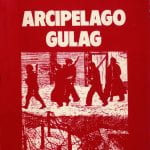#SOL22 #11
These #SOL pieces are part of a writing challenge spearheaded by Two Writing Teachers. Throughout the year, they promote the idea of writing a “Slice of Life” every Tuesday. In March, they challenge us to write a “slice” every day. I have ready many wonderful slices over the past several years, but this year is the first year I am participating.
Today, they announced that this is the second “Multi-Lit Friday of the year,” which encourages “participants who write in other languages to share their slice of life stories in another language.” Once upon a time, in the ten years I lived in Montreal, I became functionally fluent in French. So, this post is an attempt to dredge up and honor that language.
Ça fait déjà 20 ans que j’ai quitté la province du Québec. J’ai habité dans la banlieue de la ville de Montréal pendant 10 ans, une des plus accueillantes villes au monde. Où les habitants parlent en franglais, et pour la plupart coexistent en harmonie.
Mes deux fils sont nés au Québec et sont donc des citoyens du Canada ainsi que des Etats-Unis. Ma fille y habite toujours avec sa jeune famille, un garçon et une fille. J’y retourne souvent, sauf ces derniers temps… depuis l’entrée de Covid, et depuis la fermeture de la frontière Canadienne au non-citoyens.
Ils me manquent terriblement. Ainsi que les restos, la ligne d’horizon, et les nuits d’été longs et plein de sensations vibrants.
Mais, je dois dire, “mon pays, ce n’est pas l’hiver!”
This is very much a “school girl” essay, but I’ll nonetheless leave it there.


